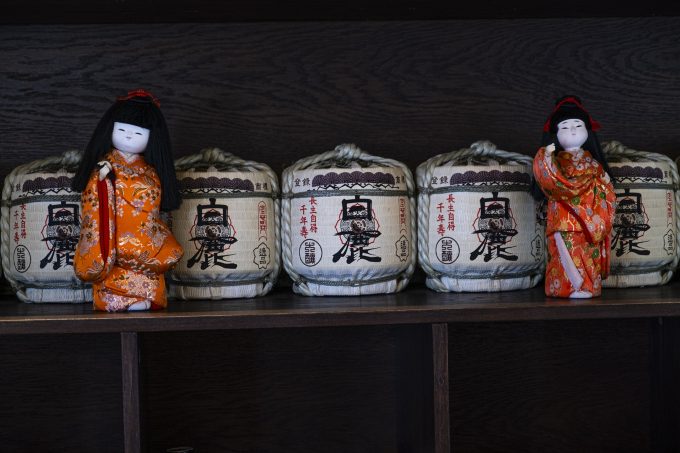Schroder Oriental Income (SOI) has announced its annual results for the year ended 31 August 2022, during which it provided an NAV total return of 2.5%, which compares favourably with the -7.7% of its reference benchmark over the same. Its chairman, Paul Meader, comments that the financial year saw two very different environments in the global economy and financial markets. The autumn period through to the end of 2021 saw continued strong economic growth, growing inflationary pressures, bond market stability and equity market euphoria. 2022 started with a sharp reversal of market sentiment, exacerbated in February by the invasion of Ukraine. As global energy prices and inflation rose ever higher, so did bond yields and equities fell sharply. In 2021, Asia had not experienced the same euphoria in equity markets as elsewhere, as the shadow of China’s policy choices lay across the region. Similarly, the falls in 2022 have been more muted than in the US and Europe but, nonetheless, the MSCI AC Pacific ex Japan Index (in sterling terms) still fell by 7.7% over the financial year to 31st August.
SOI benefitted from an increasing dividend stream during the year, which has allowed it to increase its own total dividend by 8.6% to 11.4p per share (total dividend for the prior year: 10.5p).
Performance and portfolio developments
SOI’s overweight to information technology was a headwind to its performance as the sector saw negative earnings revisions, but the manager says that the trusts positions added value overall due to strong stock selection in some of the Taiwanese names, which more than offset the negative from being overweight the sector. OSI’s real estate holdings also added value both due to being overweight and from positive stock selection. A lack of Chinese private developers and exposure to some of the Singaporean names that, in part, benefitted from ‘opening up’ was beneficial.
From a regional perspective, SOI’s positioning in Singapore and China were the major contributors to relative performance. In China, both the significant underweight to, and stock selection in, the market added value, as the ongoing issues highlighted above impacted stocks. Internet stocks were among those that bore the brunt of the sell down. In Singapore, stock selection was very strong owing to SOI’s positioning in banks, telcos and property. Those areas also saw the Hong Kong overweight add value. SOI’s small overweight to Australia, being the best performing of the larger markets, helped but stock selection in materials and financials that had the bigger impact. Whilst stock selection was also strong in Korea and Taiwan, the trust’s underweight to some of the other ASEAN markets, in particular Malaysia and the Philippines detracted.
The geographic exposure in the Company’s portfolio continues to be mainly spread between Taiwan, Australia, Singapore, Hong Kong, Korea and China. China remains a substantial underweight but is, in part, offset by the overweight to Hong Kong. Over the financial year, the manager reduced exposure to Hong Kong by reducing exposure to some of the property names that had performed relatively well and by selling SOI’s Macau gaming stock early in the period. Concerns over regulation together with ongoing uncertainty as to when travel restrictions would be relaxed due to further COVID outbreaks were the driver for the disposal. Elsewhere, the manager added to Singapore, where SOI is overweight, and it also to a limited extent to Korea.
SOI’s manager says that, as throughout much of 2021, portfolio moves tended to take advantage of the valuation spread that it saw across industries. Stocks that had performed particularly strongly and looked more fully valued were reduced in favour of those names that had lagged and looked more attractive from a valuation perspective. In aggregate, the manager has continued to add to financials where SOI is overweight with valuations still looking relatively attractive in their view, given higher interest rates and subdued credit costs. Korean, Australian and Indonesian names have been added, albeit these were partly funded from names elsewhere including in Taiwan. Real estate continues to be an important sector in the fund but the size of the overweight has been reduced, with the manager taking profits from Hong Kong and China names that had performed relatively well, despite concerns over the Chinese property sector. SOI owns one Chinese name which has performed strongly but do not own any of the private residential developers where the manager comments that the problems have been centred. Exposure to some of the Singapore REITs, which are sensitive to rising rates and have been experiencing large increases in costs, has also been reduced.
Exposure to the materials sector has also been reduced where sales have been focussed on SOI’s Australian names. The sector has performed strongly over the last year, in part helped by the surge in commodity prices. Information technology is the biggest sectoral exposure in the fund after financials. Although near term earnings have been seeing downward revisions, the manager says that it continues to see some strong long-term drivers for growth around digitisation and the roll out of 5G and the ‘Internet of Things’ and its focus remains on the Taiwanese and Korean companies.
